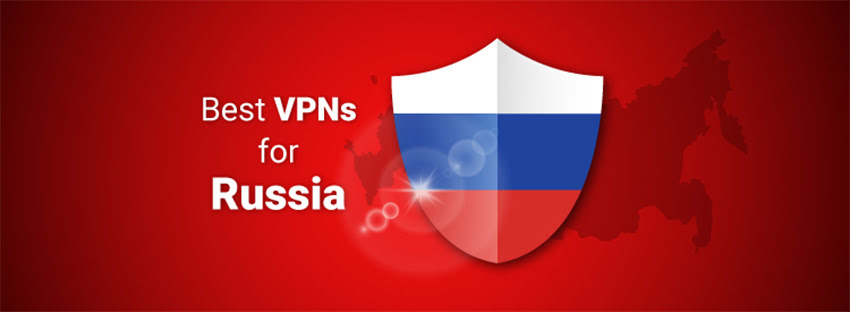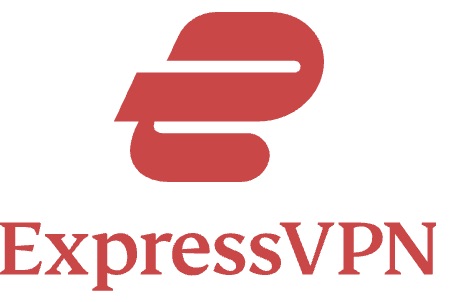3 Best Free VPNs for Russia in: Most VPNs — whether free or paid — don’t function reliably in Russia due to the country’s strict censorship policies and data regulations. These laws conflict with the privacy standards that many VPN providers uphold, leading them to avoid compliance to protect their users’ anonymity.
Additionally, Russian authorities employ advanced tactics like deep packet inspection (DPI) to block VPN usage. Internet service providers can detect and block VPN-related IP addresses, protocols, and even VPN provider websites in real-time.
That said, I wanted to see if any free VPNs could still work in Russia. So, I asked a colleague living there to test some of the most popular options. Out of all the free VPNs he tried, only one worked consistently: ProtonVPN. It’s completely free and was accessible from within Russia.
However, keep in mind that free VPNs often come with significant restrictions. For more reliable performance and better features, I recommend using a premium VPN service. Based on my colleague’s experience, ExpressVPN is one of the few that still works consistently in Russia. It’s fast, secure, and respects user privacy.
The Amazon FireStick is an incredibly powerful streaming device that has revolutionized the way we watch TV. Even if you don’t own a Smart TV, simply plug the FireStick into any HDMI port, and it instantly transforms your regular TV into a smart one with access to a wide range of streaming services. To take your FireStick experience to the next level, using a VPN is highly recommended. A FireStick VPN helps you bypass geo-restrictions and ISP throttling, ensuring uninterrupted and buffer-free streaming. Using a VPN with FireStick brings significant benefits, and one of the top options is ExpressVPN. This VPN offers excellent performance, strong encryption, and access to global content libraries. No matter where you are, ExpressVPN ensures a seamless, high-speed streaming experience with top-notch privacy protection. Plus, they offer a 30-day money-back guarantee, so you can try it risk-free. If for any reason you're not satisfied (though it’s highly unlikely), you can get a full refund. With ExpressVPN on FireStick, you can enjoy your favorite shows and movies without any interruptions or concerns. Experts Recommended:
1. ExpressVPN — Best Overall VPN for Russia in 2025
ExpressVPN stands out as the top choice for users in Russia in 2025. It’s fast, highly secure, and—most importantly—confirmed by a colleague in Russia to work consistently even under the country’s strict online censorship. While it’s a paid service, it comes with a 30-day money-back guarantee, so you can try it out risk-free.
Disclaimer
The following list is for educational purposes only. Firesticktricksapps does not create, own, host, run, manage, sell, or distribute any streaming apps, add-ons, websites, IPTV, or services. We also don’t earn commissions from featuring these services on our site. Our goal is to review and give an honest opinion from the end-user’s point of view to help people decide if these services are useful.
We cannot verify whether the services mentioned have legal licenses to distribute content everywhere. It’s up to our readers to make sure they are using these media services in line with the copyright laws of their countries. Firesticktricksapps assumes that all users are following the copyright rules in their region.
One of the reasons ExpressVPN works so well in Russia is its automatic obfuscation, which is built into all its servers and protocols. This technology masks your VPN traffic to make it look like normal internet activity, helping bypass government restrictions and internet filters. For the best performance in Russia, the VPN recommends using the Automatic protocol setting.
ExpressVPN also provides excellent support for users in restricted regions. Its website features comprehensive guides for connecting in Russia, and its 24/7 live chat offers assistance from knowledgeable reps. It even suggests specific server locations optimized for users in Russia—such as Sweden, the Netherlands (Rotterdam), the UK (Docklands), Switzerland, and Germany (Frankfurt 1).
If the main ExpressVPN website is blocked in Russia, you can request a mirrored link—a unique, regularly updated URL that can bypass government restrictions. These aren’t shared publicly, so they’re more likely to work.
The VPN also excels in streaming and torrenting. It works with 100+ streaming platforms, including popular Russian services like KinoPoisk, Okko, and Ivi.ru. P2P is allowed on all servers across its 105-country network.
Another standout feature is ShuffleIP, which changes your IP address with every page you open. This makes it almost impossible for anyone to track your online activity. In testing, IPs remained consistent with the selected country and connections stayed stable.
For users in Russia, ExpressVPN accepts multiple local payment methods, including Bitcoin, YooMoney (Yandex), and WebMoney. Qiwi Wallet is no longer supported. Note: You might need a Russian-sanctioned VPN (like Kaspersky VPN) to initially access and install ExpressVPN’s app.
2. Proton VPN — Best Free VPN for Russia With Unlimited Data
Proton VPN is one of the very few completely free VPNs that works reliably in Russia and offers unlimited data—a major perk for users in regions with heavy online restrictions.
It performs well in Russia thanks to its Stealth protocol, which disguises VPN traffic to bypass censorship. This protocol is easy to activate on all major platforms (iOS, Android, Windows, macOS). However, unlike ExpressVPN’s always-on obfuscation, Proton VPN’s must be enabled manually.
Proton VPN’s free plan offers access to servers in 5 countries: the US, the Netherlands, Romania, Poland, and Japan. While the provider does have servers in Russia, these are only available with the paid plan.
For customer support, Proton VPN offers email support and a solid knowledge base. However, live chat is only available for paying users, and unlike ExpressVPN, it doesn’t offer Russia-specific troubleshooting resources.
Its Secure Core feature is a strong privacy addition—your traffic first passes through privacy-friendly countries before reaching its final destination, adding another layer of protection. It also includes Alternate Routing, which automatically activates to help with connectivity in restrictive environments.
Streaming isn’t available on the free plan, but the paid version supports 90+ streaming platforms. Torrenting is also limited to the premium plan.
If you’re considering upgrading to Proton VPN’s full-featured plan (which includes servers in 117 countries), note that UnionPay is currently the only confirmed payment method that works in Russia.
3. Astrill VPN — Excellent Security & Beginner-Friendly for Users in Russia
Astrill VPN is a strong choice for users in Russia, offering robust security features and simple, user-friendly apps. It works reliably thanks to its StealthVPN protocol, which hides your VPN traffic from government surveillance and ISPs. Another standout feature is Smart Mode, which enhances your connection speed using regional IP addresses and helps avoid IP-based restrictions.
The apps are designed with beginners in mind — connecting to a server is quick and straightforward, typically just a few clicks. You can even route the VPN connection through a specific browser, which is especially handy if you use one solely for unrestricted internet access in Russia.
While Astrill VPN doesn’t offer a free plan like Proton VPN, it does provide a 7-day free trial, allowing you to test the service before committing. However, unlike ExpressVPN or Proton VPN’s paid plan, there’s no money-back guarantee.
One unique feature is its app-based kill switch (on Windows), which protects only selected apps if your VPN connection drops — ideal for users who want precise control over what stays online. There’s also a multi-hop option, routing your traffic through two servers for added privacy.
Astrill has servers in 58 countries, including several near Russia — such as Finland, Ukraine, Sweden, and Japan — which helps maintain fast and stable connections. According to my colleague in Russia, these nearby servers consistently worked well for browsing and streaming.
Another useful feature: Astrill lets you route traffic through port 443 when using the OpenVPN protocol. Since this port is also used by standard HTTPS traffic, it’s less likely to be blocked by Russian authorities — a great fallback if StealthVPN isn’t working.
Support-wise, Astrill VPN is impressive. It offers live chat support for quick assistance, plus a wide range of helpful resources on its website, including video tutorials, setup guides, and FAQs tailored for users in restricted regions like Russia.
As for payment options, my colleague in Russia confirmed that Astrill currently accepts UnionPay and cryptocurrency. If you need more flexibility with payment methods, ExpressVPN might be a better fit.
Testing Methodology: How I Chose the Best Free VPNs for Russia
Finding a reliable free VPN that works well in Russia is a serious challenge, so I used a thorough and proven testing process to identify the most trustworthy options. Here’s what I considered when building this list:
Ability to Work in Russia
The most important factor was whether the VPN could reliably bypass Russia’s internet restrictions. I looked for VPNs with strong obfuscation features to hide VPN traffic from surveillance systems and confirmed with each provider’s support team that their service works from within Russia.
Top-Tier Security Features
All the VPNs I recommend include industry-standard security, such as:
- 256-bit AES encryption
- A strict no-logs policy
- Kill switches to protect your data if the connection drops
These features are essential for keeping your online activity private and secure, especially in heavily monitored environments like Russia.
Best VPN For Streaming
1. ExpressVPN — Best VPN With the Fastest Speeds for Smooth Streaming

| Best Feature | The fastest speeds we tested, ensuring you can stream, browse, game, and torrent without interruptions |
| Server Network | 3,000 servers in 105 countries give you fast worldwide connections |
| Simultaneous Device Connections | Up to 8, so you can protect your compatible devices under one subscription |
| Works With | Netflix, Disney+, Amazon Prime Video, BBC iPlayer, (HBO) Max, Hulu, Vudu, DAZN, and more |
2. NordVPN — Best VPN With the Fastest Speeds for Smooth Streaming


| Best Feature | High security features and fast speeds for a reliable connection |
| Server Network | 5,400 servers in 60 countries for improved accessibility and connection speeds |
| Simultaneous Device Connections | Up to 6 devices, suitable for protecting multiple devices simultaneously |
| Works With | Netflix, Disney+, Amazon Prime Video, BBC iPlayer, (HBO) Max, Hulu, Vudu, DAZN, and more |
Fast and Stable Speeds
While free VPNs are generally slower due to limited server resources, I prioritized those that still offer decent performance for browsing, streaming, and basic usage. ExpressVPN stood out as the fastest in my testing.
Generous Data Limits
Many free VPNs have very restrictive data caps, which can be frustrating. I looked for services that offer at least 5 GB per month, and ideally unlimited data, so you don’t constantly have to worry about running out.
Great Value for Paid Plans
If you decide to upgrade, the paid options should offer solid value. That includes:
- Extensive server networks
- Excellent streaming and torrenting support
- Flexible refund policies or money-back guarantees
Risks & Limitations of Free VPNs in Russia
While some free VPNs are decent, they still come with several downsides—especially in a country with strong internet controls like Russia:
- Weaker security: Many free VPNs lack essential features like encryption and a kill switch. The ones I’ve recommended do include these protections.
- Blacklisted servers: Russia often blocks known VPN IPs. Premium services like ExpressVPN frequently update their servers and use alternative ports to stay ahead of blocks.
- Strict data caps: Free VPNs usually limit how much data you can use, which can run out quickly if you’re streaming or downloading.
- Annoying ads: Free VPNs often rely on advertising for revenue, which can be intrusive. Paid VPNs generally provide an ad-free experience.
- Privacy concerns: Some free VPNs log your activity and sell your data to third parties. That’s why I only recommend providers like Proton VPN, which follows a strict no-logs policy and regularly publishes transparency reports.
- Poor streaming and torrenting support: Many free VPNs struggle with unblocking streaming platforms or don’t allow P2P at all.
- Limited server access: Free VPNs often restrict users to a small number of server locations, which can affect speed and performance. Premium VPNs offer much broader access.
Free vs. Paid VPNs for Russia: What You Need to Know
The free VPNs I’ve reviewed all include essential privacy features like 256-bit AES encryption, a kill switch, and a strict no-logs policy, which are critical for staying safe and anonymous online. Some even offer more advanced protections, such as leak prevention, RAM-only servers, and perfect forward secrecy.
However, free VPNs still fall short in several important areas. Most have slower speeds, data limits, and poor support for streaming or torrenting. Worse, many free VPNs simply don’t work in Russia because they can’t bypass the country’s aggressive internet restrictions and VPN blocks.
If you need reliable performance in Russia, a paid VPN is usually the better choice. Premium VPNs offer faster speeds, stronger security, unrestricted access to global servers, and more reliable connections. Plus, most come with a money-back guarantee, so you can try them out risk-free.
Free vs. Paid VPNs at a Glance
| Feature | Free VPNs | Paid VPNs |
|---|---|---|
| Obfuscation | Rarely included — essential for use in Russia | Built-in on most top-tier VPNs |
| Privacy | Many log and sell user data | Strict no-logs policies, no data selling |
| Security Features | Often missing advanced protections | Includes encryption, leak protection, kill switch, etc. |
| Speed | Typically throttled and inconsistent | Fast, stable connections |
| Server Access | Limited server selection | Full access to large global server networks |
| Device Connections | Usually limited to one device | Multiple simultaneous connections |
| Data Allowance | Often capped (e.g., 500 MB to 10 GB/month) | Unlimited bandwidth |
| Customer Support | Minimal or email-only support | 24/7 live chat and comprehensive help resources |
Free VPNs to Avoid for Russia
Not all free VPNs are created equal — and some can actually put your privacy and security at risk. Here are a few you should definitely steer clear of:
- Phone Guardian – Doesn’t act like a real VPN. It only encrypts parts of your traffic and doesn’t hide your IP or location.
- Hoxx VPN – Collects and stores a significant amount of sensitive data, including your browsing activity, location, and device info — even after you delete your account.
- Hola VPN – A peer-to-peer VPN that routes your internet traffic through other users’ devices and vice versa. This can expose you to serious legal risks if someone uses your IP address for malicious activity.
- TuxlerVPN – Similar to Hola, it allows others to use your IP and logs personal data such as browsing habits and contact info, which it then sells to third parties.
- TouchVPN – Despite its wide server selection (80+ countries), it logs your IP address and online activity, compromising your privacy.
Do Free VPNs Work in Russia?
In general, most VPNs — especially free ones — don’t work well in Russia. The country enforces strict internet censorship laws, actively blocks VPN traffic, and bans services that refuse to comply with its data-sharing regulations. Free VPNs usually lack the infrastructure and features to function effectively under such restrictions.
One of the major concerns with VPNs that do work in Russia is privacy. Some collect user data and may sell it to third parties — including Russian agencies. Others claim to have a no-logs policy but agree to share limited data (like billing info) with the Russian government if required.
Among all the free VPNs tested, Proton VPN’s free plan is the only one that consistently worked in Russia, based on hands-on testing by my colleague inside the country.
Proton VPN offers:
- Strong security and privacy protections
- An independently audited no-logs policy
- Unlimited data and decent speeds
However, as with most free plans, there are limitations:
- No support for streaming or torrenting
- Only 1 device connection
- Access to servers in just 5+ countries
For a more complete experience, including streaming, multiple devices, and faster speeds, Proton VPN’s paid version — or another premium VPN like ExpressVPN — is the better choice. These services offer enhanced security, ad-blocking, P2P support, and money-back guarantees, so you can try them risk-free.
Best VPN For Firestick Free Trial


Best overall VPN with a free trial
ExpressVPN
Privacy protection and transparency
Show our expert takeIs It Safe to Use Kaspersky’s Free VPN in Russia?
Kaspersky VPN does function in Russia, and my colleague had no trouble installing or using it over several weeks. It offers basic security and a no-logs policy, but that policy hasn’t been independently verified, making it harder to fully trust.
More importantly, Kaspersky is an officially sanctioned VPN in Russia. This means:
- It may share user data with Russian authorities, as it has stated publicly.
- It must comply with the government’s censorship rules, limiting access to certain websites.
While it might be fine for light, non-sensitive browsing or to temporarily download a more secure VPN, it’s not a good choice for users who need privacy — especially journalists, activists, or anyone handling confidential data.
Why Does Russia Block Certain VPNs?
Russia blocks VPNs as part of its larger effort to control online content and limit access to information the government considers dangerous or politically sensitive. This includes:
- News outlets critical of the government
- Social media platforms like Facebook, Instagram
- Messaging apps like WhatsApp
- Websites promoting unapproved political movements or protests
Since VPNs allow users to bypass geographic restrictions and hide their real IP addresses, they enable access to content that’s typically off-limits in Russia. That’s why the government only allows VPNs that:
- Comply with censorship laws
- Agree to share data with authorities upon request
Many leading VPN providers have pulled their servers out of Russia rather than compromise user privacy. The VPNs I recommend here do not share data with the Russian government or follow its censorship rules.
Why You Should Use a VPN in Russia in 2025
Protect Your Online Privacy
A VPN encrypts your internet traffic, making it unreadable to anyone — including your Internet Service Provider (ISP) and government surveillance systems. This is especially crucial in Russia, where online activities are closely monitored. Whether you’re a journalist, activist, or simply a privacy-conscious user, a VPN helps ensure your digital footprint stays hidden.
Stay Safe While Communicating Online
With Russia’s ongoing restrictions on free speech and strict regulations against dissent, expressing your opinions can feel risky. A VPN helps you communicate safely and anonymously by hiding your IP address (which can reveal your location) and encrypting your data, making it difficult to trace your activity back to you.
Secure Public Wi-Fi Connections
Public Wi-Fi networks in Russia — like in airports, cafes, and hotels — are vulnerable to cyberattacks. Hackers and even state actors can easily intercept unencrypted traffic. A VPN shields your data on public networks by encrypting it, protecting you from hacking, snooping, and potential data theft.
Stream & Torrent with Privacy
VPNs mask your IP address and encrypt your data, allowing you to anonymously download torrents and stream content without being tracked. Whether you’re accessing global streaming platforms or sharing large files via P2P, a VPN ensures your activities stay private and secure.
Frequently Asked Questions
What’s the best free VPN for Russia?
My top recommendation for Russia is ExpressVPN. While it’s not free, it offers industry-leading security, obfuscation technology to bypass Russian censorship, fast speeds, and excellent streaming support — including for local platforms like KinoPoisk and Ivi.ru. Plus, it comes with a 30-day money-back guarantee, so you can try it out risk-free.
If you’re strictly looking for a free VPN, Proton VPN’s free plan is the most reliable option. It’s the only free VPN confirmed to work consistently in Russia (tested by my colleague in the country), provides unlimited bandwidth, decent speeds, and access to servers in 5 countries.
How do I browse the web from Russia using a free VPN?
Just follow these 3 simple steps:
- Choose a free VPN that’s confirmed to work in Russia — such as the ones listed in this guide.
- Download and install the VPN app on your device. The setup process typically takes less than 2 minutes.
- Launch the app and connect to a server. Once connected, you can start browsing, streaming, gaming, or torrenting securely.
Is it legal to use a VPN in Russia?
Technically, VPN use is legal in Russia, but the country has tight controls on which VPNs can operate. Only government-approved VPNs are allowed, and these are often required to comply with monitoring and censorship regulations.
While using a banned VPN could theoretically result in a fine, there are no known cases of foreigners being penalized for using non-approved VPNs in Russia. Still, it’s wise to stay informed about current laws.
Which VPNs still offer Russian servers?
Proton VPN is one of the few providers that still maintains physical servers in Russia. However, access to these servers is only available on the paid plan. It also offers strong privacy protections, a trustworthy no-logs policy, and a user-friendly experience across its apps.
Can I get a Russian IP address with a free VPN?
No — reputable free VPNs do not offer Russian IP addresses. This is because Russian law requires data logging, which goes against the privacy standards of trustworthy VPN providers.
However, free VPNs that work in Russia can still help you stay safe and access global content by connecting to nearby locations like Belarus or Romania, which often deliver good performance and speeds.











Related Articles